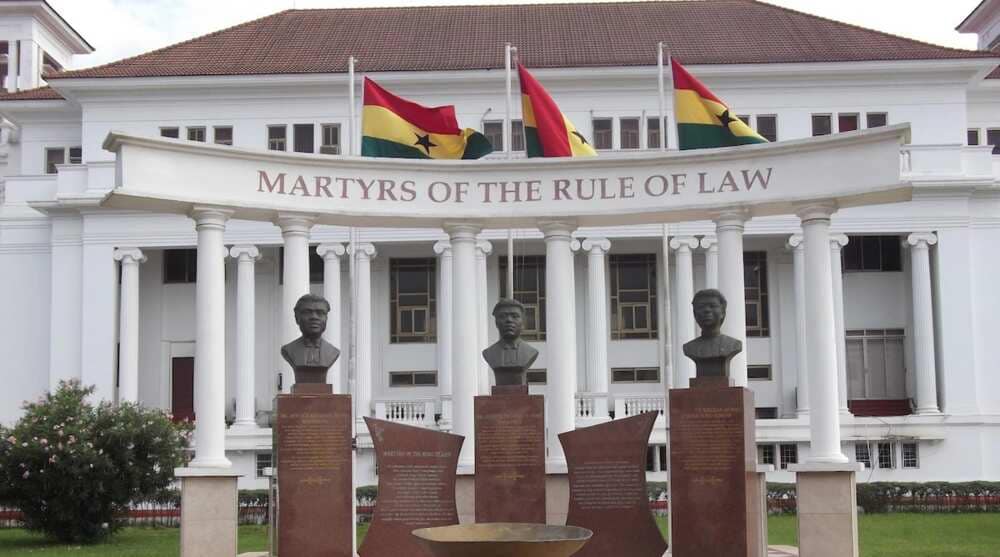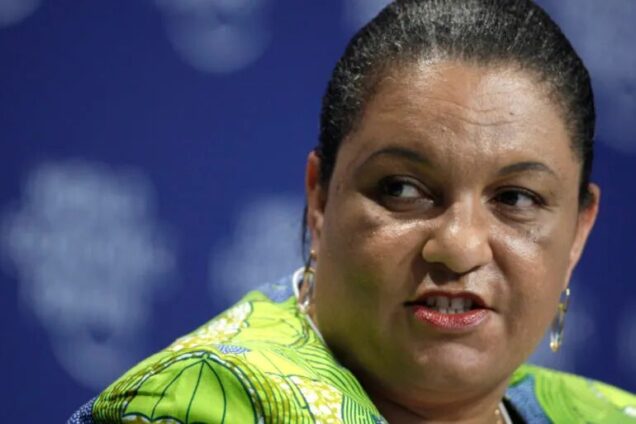Former Minister of Foreign Affairs and Awutu-Senya West MP, Hannah Serwaa Tetteh, has raised thought-provoking questions regarding the Supreme Court’s decision-making process.
Her remarks come in the wake of the Court’s recent ruling that overturned Speaker of Parliament Alban Bagbin’s decision to oust four Members of Parliament.
Taking to her Facebook page, Tetteh questioned whether the justices of the Supreme Court consider public opinion and the broader social implications of their rulings, particularly in politically charged cases.
The United Nations Secretary-General’s Special Envoy for the Horn of Africa, emphasised the significance of the judiciary’s role in maintaining stability in Ghana’s democratic system, especially as elections draw closer.
“When the Justices of the Supreme Court take their decisions or make orders in whatever circumstances, not just in the context of the recent ex-parte decision against the Speaker’s ruling, do they listen to the public commentary and reflect on their decision, its implications and how it has been received not only by the parties to the particular suit or in a case with political undertones?” Hannah Tetteh asked.
In her post, she acknowledged the expectation for the judiciary to interpret the law impartially and ensure its fair application.

However, she stressed that these decisions are made within the context of a society governed by the same laws, which encompasses diverse stakeholders.
“We live in hyper-partisan times, and the closer we get to elections, the more tense the political environment becomes, and consequently, the times when peace and security within the state is at its most fragile,” she warned.
Read also: Supreme Court stays Speaker’s ruling ousting 4 MPs from Parliament
Hannah Tetteh’s remarks pointed to the importance of the judiciary not only surviving in such an environment but thriving as an essential pillar of Ghana’s democracy.
She highlighted the critical role a strong and principled judiciary plays in fostering a competitive yet peaceful democratic process.
“A strong, principled judiciary is essential to a competitive but peaceful democracy. They have an important role to play in ensuring this democracy not only survives but thrives,” she concluded.
Hannah Tetteh’s comments have sparked a broader discussion on the role of the judiciary in navigating Ghana’s tense political landscape, particularly as the nation approaches another election cycle.
Latest Stories
-
GRNMA raises concern over postponed meeting with Parliament, demands urgent action on agreements
3 minutes -
Restore academic calendar – Education Minister urges GES and WAEC
6 minutes -
Your hard work and excellence set you apart – Haruna Iddrisu to awardees
11 minutes -
Mahama to sponsor top WASSCE candidates with GETFund scholarships – says Education Minister
15 minutes -
University of Ghana dispels rumours of event cancellations amid COVID-19 resurgence
16 minutes -
Dzifa Gomashie leads presidential mission to honour highlife legend Agya Koo Nimo
19 minutes -
Frontier Mission Network rescues 65-year-old visually impaired homeless widow
24 minutes -
Silence is not weakness but strength – Amanda Clinton to Chief Justice
28 minutes -
Ghana Tourism Authority to partner Tribe Culture Festival 2025 in USA
49 minutes -
GPP II implementation committee submits final report to steering committee
1 hour -
Republic Bank MD shares insights to reduce interest rates
1 hour -
I make about GH₵30,000 a month from selling CDs of my songs – Wan-O
2 hours -
Republic Bank unveils six-pillar strategy to drive financial inclusion
2 hours -
GHS responds to COVID-19 outbreak at UG
2 hours -
Court fines two fishmongers for receiving stolen tilapia
2 hours

